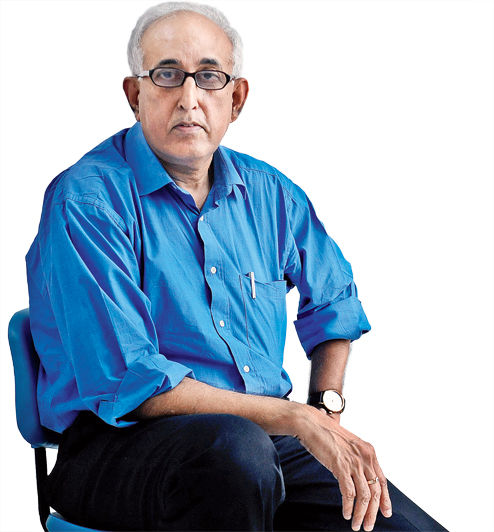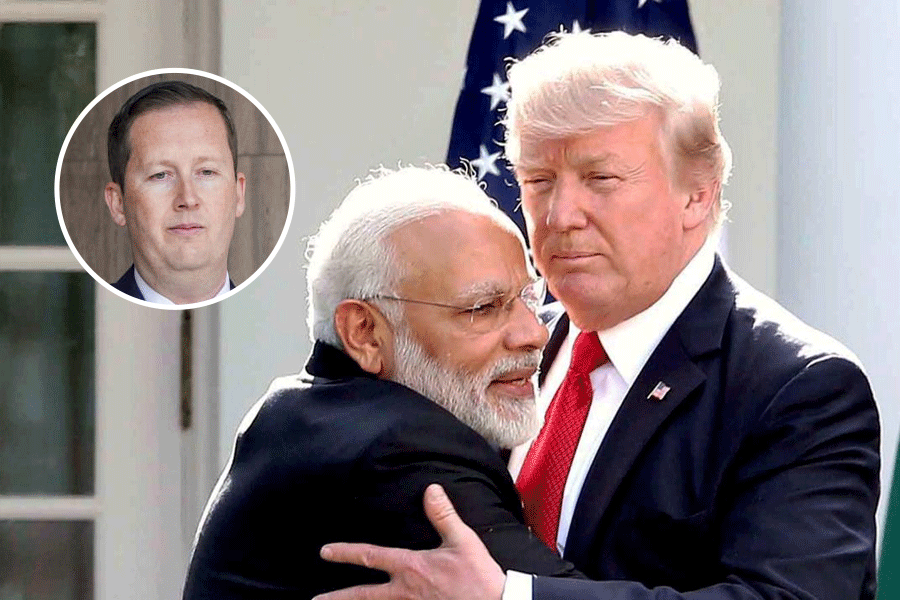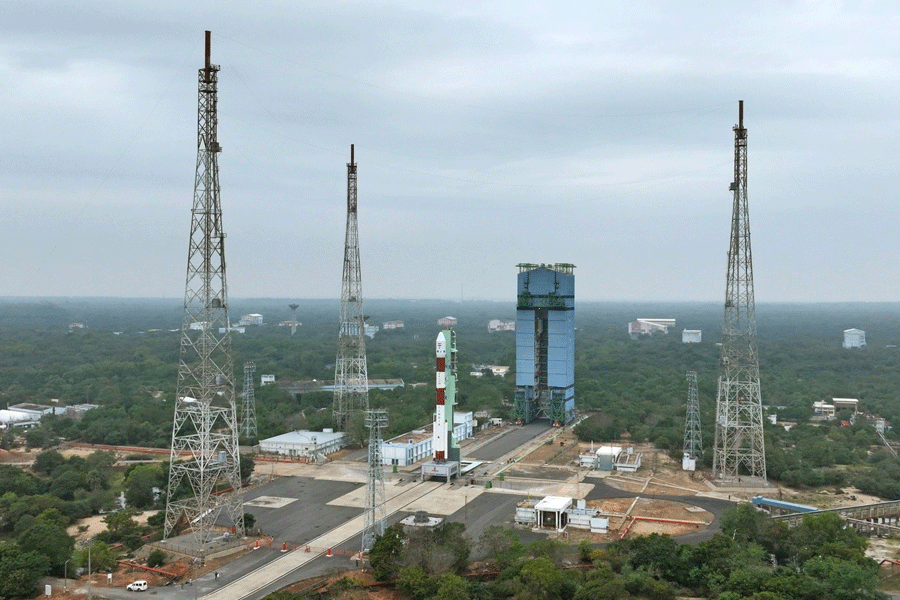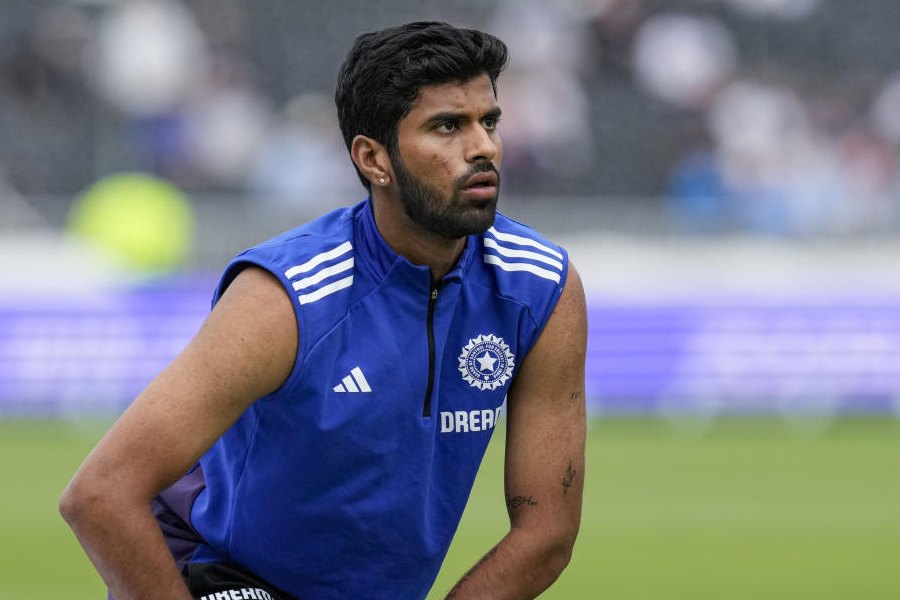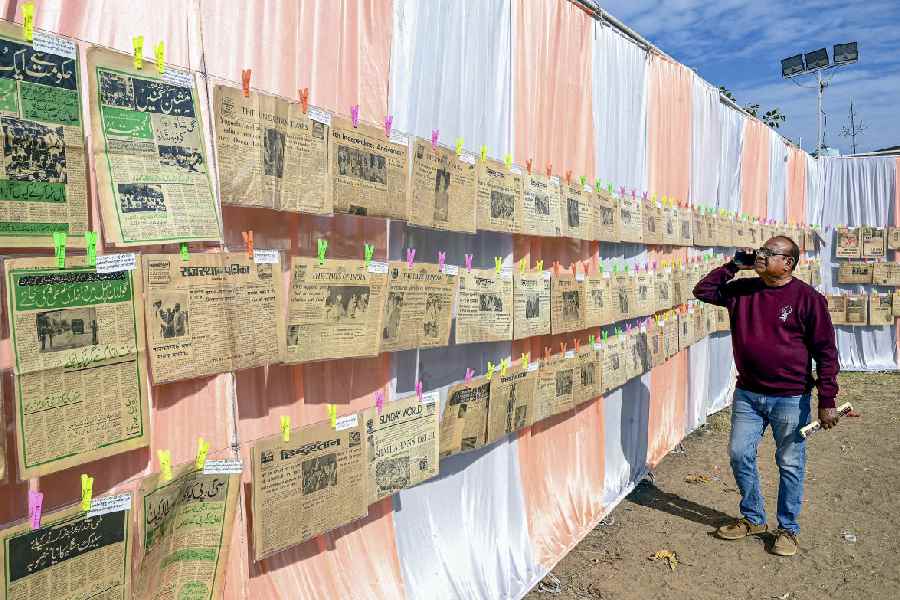-

Pic: Yasir Iqbal
As the 11 students celebrated, Virander Singh Chauhan went into mild depression. The students, who were last week awarded the Inlaks scholarships to study abroad, had reasons to celebrate. But Chauhan — one of the men behind scholarships — felt strangely low.
It has been happening for 30 years. 'It (the depression) used to last for weeks till a few years ago. Fortunately, these days, I feel very low only for a few days,' he says.
That's because, every year, Chauhan, 64, goes through some 2,000 applications from bright young candidates applying for some of the most prestigious scholarships for studying in the best colleges in the world. As the secretary for the Rhodes scholarships (UK), the Inlaks scholarships and the Felix scholarships, he is the go-to man for talented Indian students.
'It's a highly satisfying exercise choosing the best and the brightest, but I also go into a shell for days thinking about those who couldn't make it. More often than not, almost all the candidates who make it to the final stage deserve a scholarship but we can choose only a handful,' Chauhan says, sitting in his office at the International Centre for Genetic Engineering and Biotechnology (ICGEB) in Delhi. He was the director of the institute for 16 years till he stepped down recently, and now mentors PhD students.
His room on the second floor is located at the end of a huge laboratory hall lined with scores of refrigerators along its walls and research students carrying out complex experiments. With a view of the Qutub Minar and the sprawling green campus, Chauhan perhaps has the room with the best view.
He is a towering figure — figuratively and literally. Standing tall at 6'1', he is a leader in the field of research on malaria.
A framed picture of a young, lanky and bespectacled Chauhan is placed in a corner of his room. 'That's me — representing Oxford in a long distance race at Hyde Park in London,' he says with a gleam in his eyes.
A Rhodes scholar himself, he was brought on board to select candidates when he was 30 by his mentor, colleague and running partner at Delhi University's St Stephen's College, Ranjit Bhatia, also a Rhodes scholar and an Olympian. 'I am never tired of interacting with so many talented people,' Chauhan says.
Many of the successful candidates recall him with fondness. 'He was very interested, probing, and yet light-hearted — a good combination, shall we say? As I met him on other Inlaks-related occasions, I thought he was always engaged with the progress of students — and someone really interested in the cause of education,' says Ruby Lal, an Inlaks scholar from 1995 and an associate professor of South Asian Civilisation at Emory University in the US.
Coming from a poor family — he lived with his four brothers and parents in a refugee colony in West Delhi — Chauhan, who studied in a Hindi-medium government school, appreciates the importance of scholarships in a student's life better than most others. 'But for the scholarships, I probably wouldn't have progressed beyond school. It was the national science scholarship offered by the government that funded my higher education, and later it was Rhodes.'
Chauhan also found time to run and represent Delhi at the national level. He was a 400-metre hurdles state champion and later took to long-distance running.
The Rhodes scholarship tends to focus on capable students who have passionate interests outside academics. Finding people with varied talents is difficult these days, he says. 'The domain knowledge of students may be more, but the left and right of education have taken a tumble. A brilliant science student may draw a blank when asked about Arundhati Roy or Ramachandra Guha. Many also admit that they have never read a book outside their field, and that's sad.'
Chauhan himself developed an interest in fine arts, literature and other fields because of his association with the scholarships.
'He may be a scientist, but his questions during my final board interview were probing and he came out as somebody who knew a fair bit about my field,' says Megha Kumar, a history student and Rhodes scholar (and currently in the news because of publishers backtracking on her book on sexual violence in the 2002 Gujarat riots).
His elder daughter, Sukriti, is also an Inlaks scholar. 'I don't involve myself with the shortlisting which is done by experts in the respective fields. If somebody is not shortlisted by the panelists, there is no way that a person can go forward. And as per laid down procedures, I was not in the final committee. She got it on her own merit.' And he goes on to add that his younger daughter had applied for Rhodes and failed. 'Woh toh first stage pe hi out ho gayi (She was out in the very first stage),' he says and laughs.
Professor Shahid Jameel, who worked with Chauhan for almost 25 years at the ICGEB and assisted him in preliminary stages of various scholarships, is all praise for him. 'The whole process (of selection) was transparent and fair. That's the reason so many candidates become so successful in their careers,' Jameel says.
But not everybody is as glowing when it comes to Chauhan's tenure as ICGEB director. He has been accused of running the institution like his own fiefdom. 'He doesn't like any kind of opposition,' says a scientist. 'And he gets angry very easily. He has humiliated many scientists in front of juniors.'
Chauhan pauses for a bit when asked about his reputation of being abrasive. 'I find it very difficult not to say what I should say, irrespective of whether the timing is right or wrong. I like being direct. People have problems with that, but that's the way I am,' he replies.
He gives a cricket analogy to answer a question on the way he ran the institute: 'When Indian cricket doesn't do well, Dhoni gets the flak, but when it does, everybody praises him. It's a bit like that.' But he admits that employees were unhappy because of the skewed salary structures at the institute.
He moves on to sports — a subject dear to his heart. 'When I was in the lab, I was thinking of running, and when running, I was thinking of my lab. Between the two, I think I was happier running.' He ran till he was 40, and, but for a botched up knee operation, he feels he would have continued to run till today.
'Running is self-expression. You are in motion, and you can think a lot. When I see somebody running, I feel really sad and wish I could run,' he says.
Chauhan is planning to run one final marathon. He now wants to lead a team of scientists and work on increasing drug resistance to antibiotics. 'I think, it will be a long race,' he says.
And he will — no doubt — continue with his mental marathon as the applications on his table pile up.

